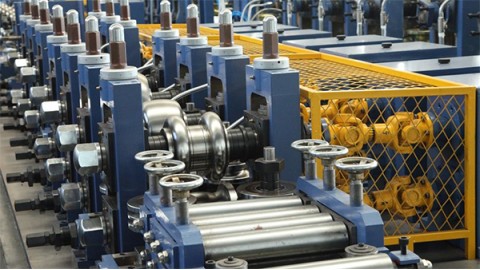For propylene glycol, a food additive that has recently received widespread attention, it has been reported that long-term excessive consumption may affect renal function. What is the truth of the truth? What is Propylene Glycol? A number of food safety experts answered this when they were interviewed by the media.
Popular science writer, Ph.D. in food engineering: It is a prescribed additive that can make food taste better
Propylene glycol is a colorless, odorless, viscous liquid, the doctor wrote on September 16. It can better dissolve substances such as colors, flavors and antioxidants, so that they exist uniformly and stably in food. Plus, it retains moisture and prevents hair growth, thereby preventing food from drying out. All in all, its addition can make the food taste better and keep the good taste longer.
Propylene glycol is a food additive widely used in the food industry and a drug carrier widely used in the pharmaceutical industry. The US FDA has given it a GRAS (Generally Recognized As Safe) classification, and the European Food Safety Authority (EFSA) has also approved it for use in some foods. In China, the "National Food Safety Standard for the Use of Food Additives" stipulates that the functions of propylene glycol are stabilizers and coagulants, anti-caking agents, thickeners, etc., and the national standard for food additives GB2760 allows it to be used in raw wet flour products and in pastries.
Zhong Kai, Deputy Director of Kexin Food and Nutrition Information Exchange Center
Propylene glycol is widely used in food, medicine and cosmetics
According to a report by Science and Technology Daily on September 23, "Propylene glycol is a food additive that can emulsify, stabilize and coagulate." Zhong Kai, deputy director of the Kexin Food and Nutrition Information Exchange Center, said.
Propylene glycol is an organic compound, usually a slightly sweet, odorless, colorless and transparent oily liquid, hygroscopic, and easily mixed with water, acetone, and chloroform. It has good viscosity and hygroscopicity and is widely used in food, medicine and cosmetic industries.
In the food industry, propylene glycol is mainly used as a food emulsifier and an excellent solvent for flavorings and pigments. In the pharmaceutical industry, propylene glycol is often used in the manufacture of various ointments, ointments, solvents, softeners, etc. In addition, propylene glycol is also used as a solvent and softener for cosmetics.
The safety of propylene glycol has been certified by the US FDA
"Health Research" is a core journal of Chinese natural sciences, which is a journal and is sponsored by the Chinese Center for Disease Control and Prevention, in charge of the Ministry of Health. In March 2007, it published a study on the toxicity of propylene glycol by the School of Public Health of Fudan University. According to the three different structures of propylene glycol, the scientific research team designed three schemes of low, medium and high doses to conduct toxicity tests to study which organs and tissues propylene glycol would damage. The results of the study showed that no matter which structure of propylene glycol, no obvious renal pathological changes were caused.
"What is the additive propylene glycol?" of "Science and Technology Daily" "The article quoted Zhang Yimin, director of the Second Department of Nephrology, the Sixth Affiliated Hospital of Sun Yat-sen University: "So far, the conclusion that propylene glycol causes kidney damage has not been /confirm/ied, nor has there been a large-scale mass incident, and there is no basis for it. There has been positive evidence in research." As a food additive, the safety of propylene glycol has been certified by the US FDA, and it is the carrier of many drugs and foods.
A senior food industry expert shared the same view. "With regard to the toxicity of propylene glycol, most reports currently mention damage to the kidneys of animals. If the dose data of animal toxicology experiments are calculated to be 100 times the safety factor of human beings, an adult weighing 60 kg should consume it every day. only 12 grams of propylene glycol can cause poisoning. According to this calculation, you need to eat 4 kilograms of cakes with qualified propylene glycol content every day.”
At the same time, studies have found that propylene glycol is metabolized and excreted very quickly. After people eat propylene glycol, about 45% will be excreted intact through the kidneys, and the rest will be metabolized into lactic acid in the body. Overdose of propylene glycol is less likely to cause harm to healthy people, so there is no need to panic. If you occasionally encounter exceeding the standard, considering that people usually do not eat that much, and it is not necessarily "long-term consumption", the possibility of harming health is also very small.




